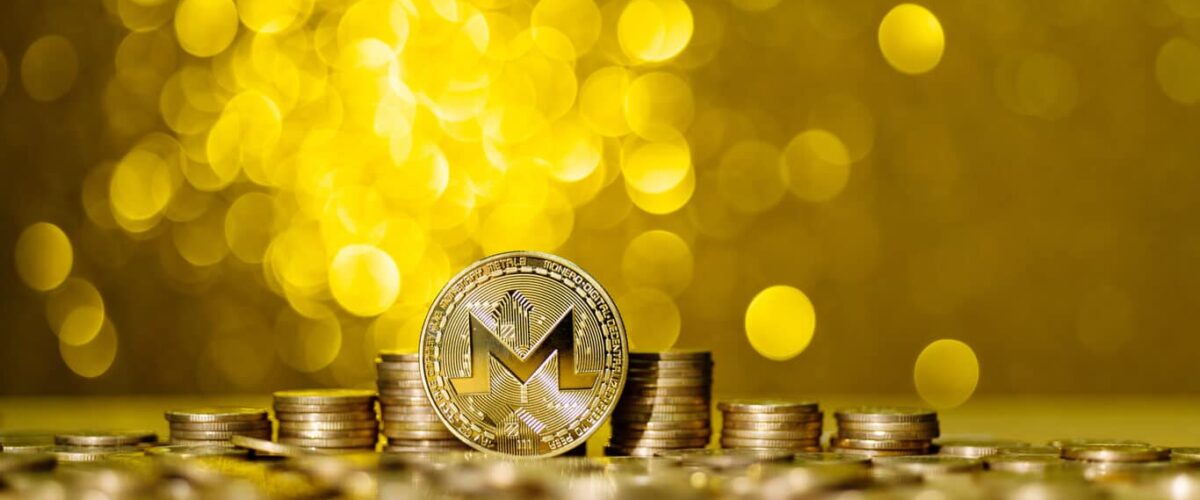
Monero is a privacy-based digital coin that was created in April 2014 as a fork of another cryptocurrency, Bytecoin. Bytecoin was notable in that it was the first digital currency that was written using the CryptoNote technology, which is now the backbone of most of the privacy-based cryptocurrencies on the market, including Monero.
The currency was the brainchild of seven developers, including Riccardo Spagni, who decided that while the Bytecoin technology was good, the coin itself was problematic. The developers forked the Bytecoin blockchain and named their new currency Bitmonero. This was then shortened to just Monero, which literally means ‘coin’ in Esperanto.
Monero is different from Bitcoin and many other cryptocurrencies. The Monero token continues to use the CryptoNote technology and is therefore a true privacy-based currency, offering users a high degree of anonymity. The privacy of all CryptoNote coins is ensured by grouping public keys together to create a complex scheme of digital signatures known as ‘ring signatures’. These are different from the EDSA signatures used by many other blockchains.
Ring signatures combine the public keys of multiple individuals, along with one real signature and a number of other signatures known as mixins. By combining several keys in a single transaction, it makes it impossible to tell exactly where the transaction came from, ensuring even more privacy and anonymity than is offered by most other cryptocurrencies.
The Monero ledger does not record the actual addresses of the sender and recipient involved in any transaction, and the single-use address that is created for the transaction is recorded but cannot be directly linked to the actual address of either party in the transaction. Therefore, the ledger doesn’t allow anyone to track down the individuals involved in any Monero transaction.
Monero also has a specific way of handling transactions by splitting the amount of any single transaction into multiple smaller amounts, and then treating each of these smaller amounts as a separate and distinct transaction, each of which is given a unique single-use address. Each of these split amounts is mixed in with other transactions through the use of ring signatures, making it extremely difficult to identify any details of any specific transactions.
One further advantage of Monero over many other crypto assets such as Bitcoin is fungibility. This means that two units of a currency can be mutually substituted with no difference between them. There is no serial number, as you would find with fiat money, or unique way to identify each coin, as with some digital coins. With Bitcoin, for example, the transaction history of a coin is recorded on the blockchain, and this can lead to the identification of specific units that have been part of specific transactions. This cannot be done with coins such as Monero.
You can buy and sell Monero on a variety of crypto exchanges and brokerages worldwide, including Coinbase, Coinmama, Kraken and Crypto.com. As it is not one of the highly popular, top 10 cryptocurrencies, Monero’s availability and liquidity will vary depending on the exchange or brokerage you use. You can, in theory, buy Monero with a credit or debit card, with fiat currency or with other types of crypto coins. In practice, the payment methods available at the crypto exchange you use will dictate the payment methods you can use.
Due to the privacy features of Monero, it can be easy to steal and hard to trace or recover, so storage of your Monero is something to think about. Your coins are only as secure as the wallet you use to store them, so ensure that you use a secure wallet and follow all best practices to keep your crypto assets as safe as possible.
Monero, like most cryptocurrencies, is not recognized as legal tender, but this does not in any way mean that it is illegal, simply that it is not backed by a national government or central bank, like fiat currency is. However, the extreme privacy features that Monero has built into its transactions does mean that it can be easily used for illicit activities and may also be used in crypto scams.
While it is generally as safe to buy, sell and trade Monero as it is any other cryptocurrency, just be aware that if you are asked to make a Monero transaction in circumstances that you deem to be suspicious, it could potentially be part of some kind of scam or fraudulent activity. While the currency’s privacy features appeal for a wide range of reasons, the fact that transactions are pretty much untraceable does mean that it is possible to be vulnerable when using the currency for transactions to other users who you do not know.
If you are interested in trading Monero, you’ll want to keep up to date on Monero news, which you can do online in the cryptocurrency forums, via the newsfeeds at various crypto exchanges, and by following Monero on Twitter and other social media sites. While the top cryptocurrencies list is constantly changing, Monero is frequently among the top 30 most popular cryptocurrencies on the market, so finding news and updates on the coin is not usually too hard. You can also, of course, monitor daily changes in the price of Monero easily online via your preferred crypto exchange.
When it comes to the future, Monero is very similar to most other cryptocurrencies, in that it is almost impossible to predict future trends and prices due to the volatile nature of the coin and the entire crypto marketplace. Does Monero have a future? Most experts seem to agree that the coin will be around for many years to come, and some are speculating that the coin could well increase in value substantially over time.

If you’re new to crypto investing, or even if you’ve been doing it for a while, you may…

Whether you’re a fresh enthusiast or an experienced trader, you’ll know that the crypto industry hardly makes the…

While inflation is never far from the thoughts of many economists, government policymakers, and individuals concerned with keeping…

Comments